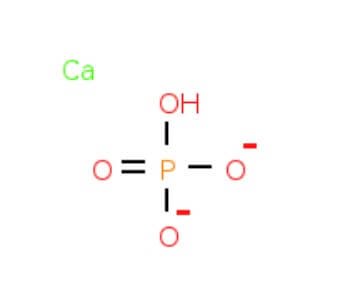Calcium Acetate USP [CAS No. : 62-54-4]
- Product Name : Calcium Acetate
- CAS : 62-54-4
- Molecular Formula : C4H6CaO4
- Molecular Weight : 158.17 g/mol
- Pharmaceutical Grade : BP / EP / USP
- Therapeutic Category : Minerals and electrolytes, Phosphate binders
Description
Calcium Acetate is calcium salt of acetic acid. It has been commonly referred to as the acetate of lime. Calcium is a mineral essential for many cellular functions including nerve impulse transmission, muscle contraction, cardiac function, bone formation, and capillary and cell membrane permeability. Calcium acetate is administered orally to prevent or treat calcium deficiency and to treat hyperphosphatemia (excess phosphate in the blood) in patients with kidney disease: the calcium ion combines with dietary phosphate to form (insoluble) calcium phosphate, which is excreted in the faeces. It has a role as a chelator.
Therapeutic uses and effectiveness:
- Calcium Acetate and other calcium salts are phosphate binders. They work by binding with the phosphate in the food you eat, so that it is eliminated from the body without being absorbed. Calcium acetate is one of a number of calcium salts used to treat hyperphosphatemia (too much phosphate in the blood) in patients with kidney disease
- Used to restrict phosphate absorption in patients with chronic renal failure and oxalate absorption in patients with inflammatory bowel disease
- Calcium Acetate is indicated in patients with end-stage renal failure to lower serum phosphate concentrations. It does not promote aluminum absorption
Other related information:
- When medical problem like hypercalcemia exists, calcium acetate should not be used (calcium acetate may worsen the condition)
- Concurrent use with digitalis glycosides is not recommended because calcium acetate may cause hypercalcemia, which could precipitate cardiac arrhythmias
- The chemical has been verified to be of low concern based on experimental and modeled data.


![Calcium Acetate USP [CAS No. : 62-54-4]](https://heallifesciences.com/wp-content/uploads/2023/10/Calcium-Acetate-.png)
![4-BUTYLRESORCINOL [CAS No. 18979-61-8]](https://heallifesciences.com/wp-content/uploads/2024/12/4-Butylresorcinol-e1733232291330-300x300.jpg)
![Calcium Phosphate Dibasic [CAS 7757-93-9]](https://heallifesciences.com/wp-content/uploads/2024/07/Calcium-phosphate-dibasic-CAS-7757-93-9-300x300.jpg)
![4-Hexylresorcinol [CAS No. 136-77-6]](https://heallifesciences.com/wp-content/uploads/2024/12/4-Hexylresorcinol-e1733233160900-300x300.jpg)